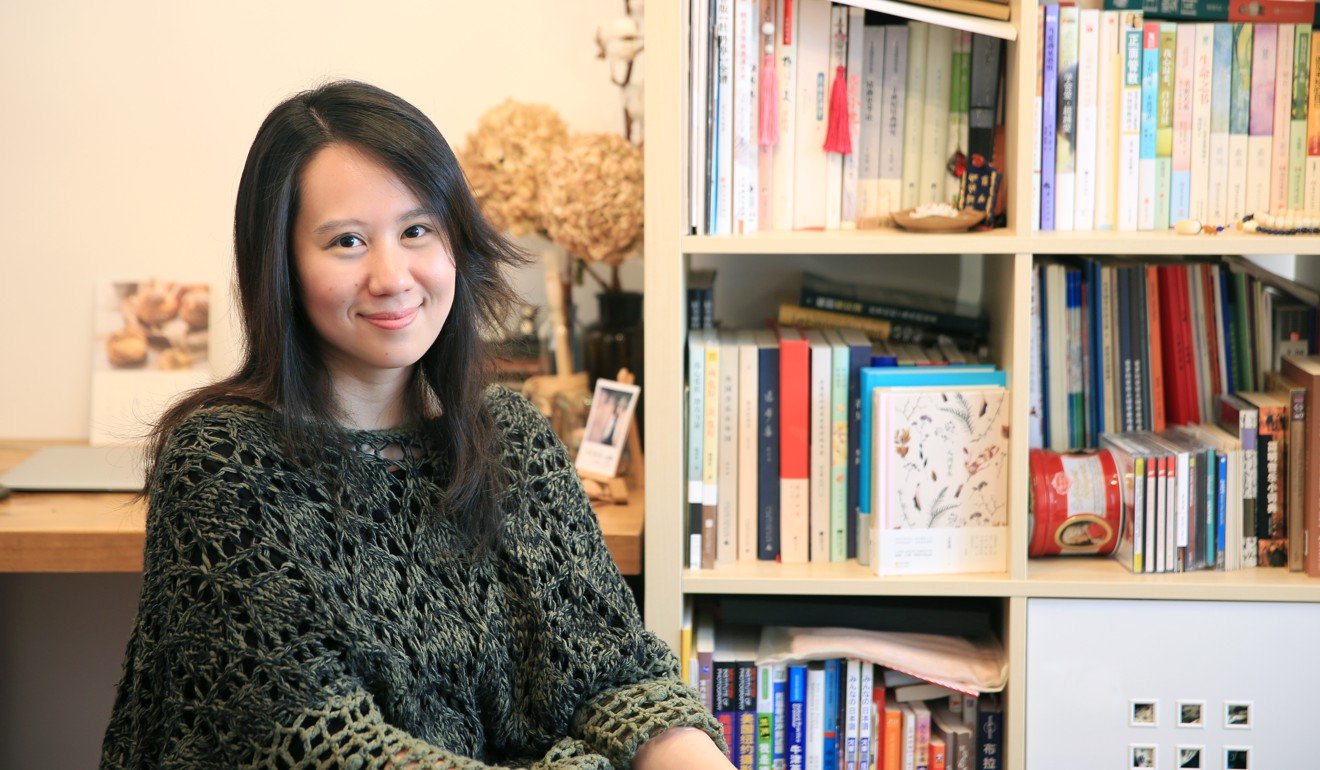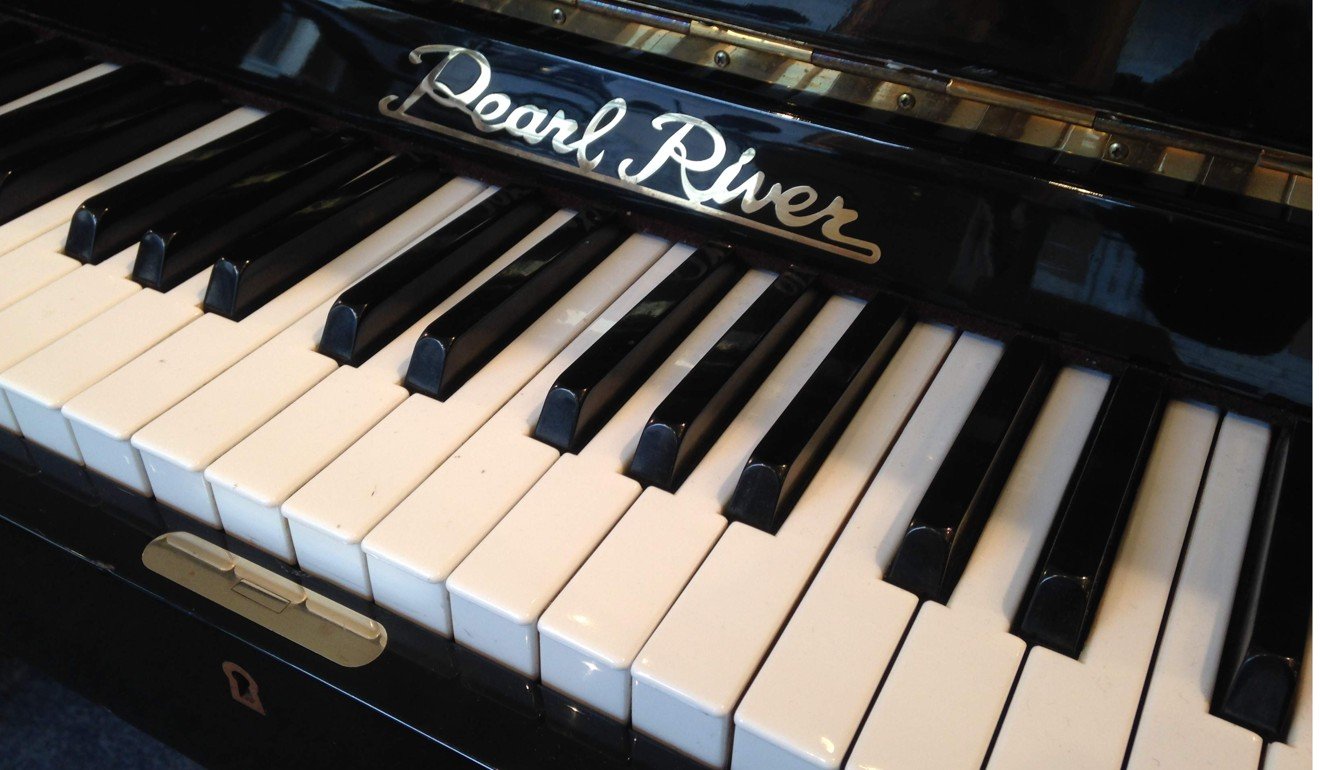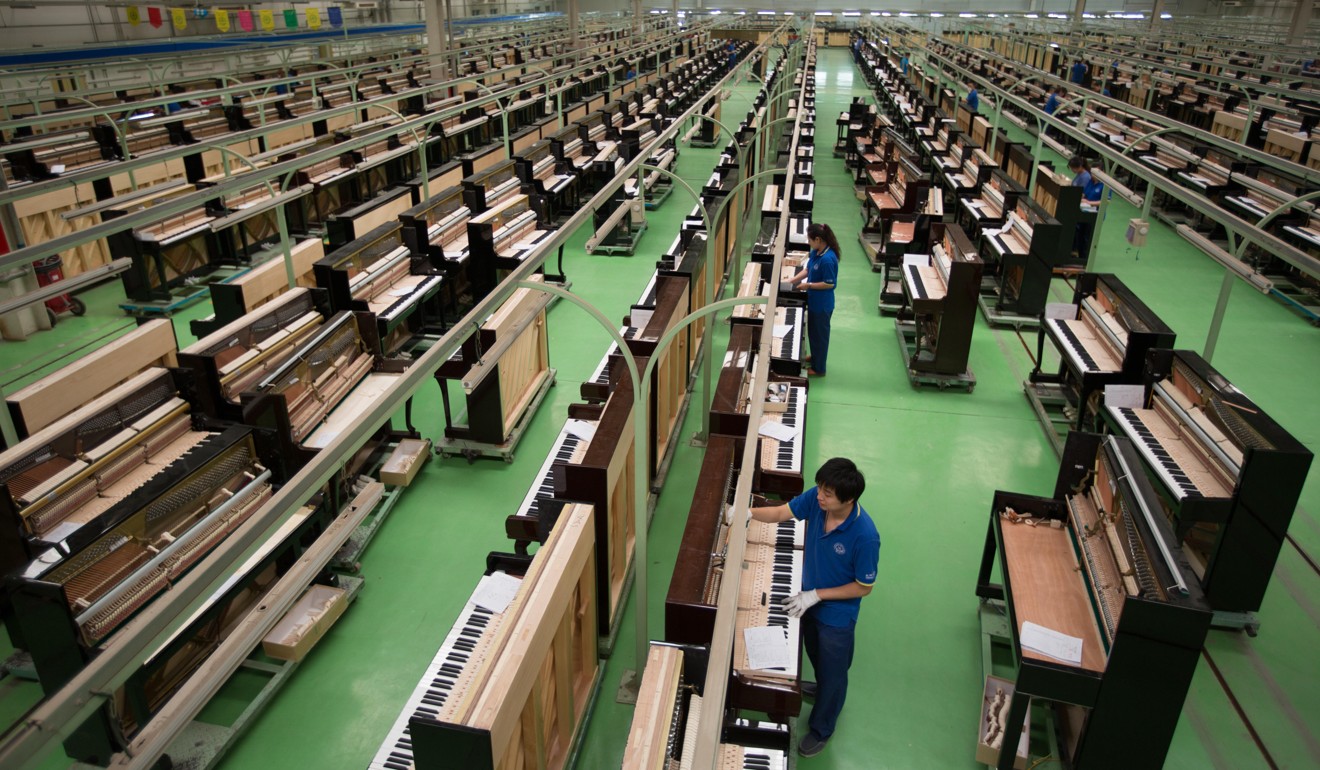
Chinese love to play piano, even if their locally made instruments keep hitting bum notes
- Country is the world’s biggest manufacturer and exporter of pianos, shipping about 350,000 a year, but has a reputation for producing low-quality models
- As living standards have improved across the country, pianos are no longer seen as luxury items
Playing the piano is becoming an increasingly popular pastime for Chinese people young and old, but while their passion is indubitable, the same cannot be said about the local manufacturers that make more of them than anywhere else in the world.
China opened its first piano factory in 1895 but it was not until the 1950s, after the founding of the People’s Republic, that state-controlled manufacturers began to spring up in major cities. Today, the country builds and sells about 350,000 models a year.
But despite its prolific output, China is not regarded as a maker of quality pianos.
State-owned Chinese firm makes a play for Steinway pianos
According to Hong Kong pianist Gwendoline Cho-ning Kam, the “character” of a piano is determined by the craftsmanship of the people who make it, and when it comes to quality, China still has a long way to go.
“Pianos are about personal preference, but the ones made in China can’t compete on the world stage,” she said. “We rarely see them in international concert halls.”
Kam has been playing the piano for about 30 years and has tried out all sorts of brands, from locally made models like Pearl River and Yangtze River, to the best in the world from Germany’s Steinway and Italy’s Fazioli.

A manager with a leading Chinese manufacturer, who asked not to be named, said local firms did not have the expertise to produce all of the components needed to make a piano and so had to rely on imports.
“We can’t produce strings, for example,” he said. “So we buy them from Germany or Japan.”
It was the same with the felt needed for the hammers, he said.
“The raw material for hammer felt is Australian wool, but different companies make different types to create different sounds,” he said. “We’ve made a lot of progress making hammer felt but when it comes to high-end pianos, we have to import it from Germany.”
China also had a lack of technicians who truly understood music, he said.
“This is a young industry for us and our technicians’ understanding of the piano and piano music is way below that of Westerners, and that affects a piano’s character.”
David Sun, who has been tuning and repairing pianos in Shanghai and Nanjing since graduating from Nanjing University of the Arts in 2011, said that although China was not known for the quality of its pianos, most people were unconcerned.
“Most families don’t care much about the brand and most of the pianos they buy come from small Chinese factories,” he said. “The most popular ones are priced between 20,000 and 30,000 yuan (US$3,000 to US$4,400), with some costing just a little over 10,000 yuan, which is much cheaper than comparable European or American brands.”
Centuries-old pianos to go on show at Hong Kong’s Tai Kwun
The industry is in a different phase of development to those in the West, he said.
“The mission for many of the factories in China is to make pianos as affordable as possible, while others, who understand nothing about pianos, are in the business only to make money,” he said.
“China also doesn’t have the tradition or cultural links with the piano,” he said. “So even if a domestic maker spent a lot of money to produce a great piano, people [who know about these things] would still choose one made in Europe.”

Xiao Wei, vice-chairman of piano manufacturer Pearl River, which bought German brand Schimmel two years ago, said the company had been trying to upgrade its products after a period of rapid growth.
“Buying Schimmel in 2016 was an important part of our strategy to shift to high-end instruments,” he said.
Love for Western classical music continues to rise in China
About 90 per cent of the company’s pianos are sold in China with the rest going to Europe and North America.
“As salaries have increased in China, so the piano is no longer regarded as a luxury item,” Xiao said. “And many families have realised that playing the piano is a good way for their children and themselves to develop.”

Sun agreed there had been a spike in the number of people taking up the piano, with the fastest growing sector being the elderly.
“I would say 20 to 25 per cent of my clients are retirees in Shanghai,” he said. “Many of them went to the local college to learn how to play.”
China’s middle class spend less as they scrimp and save for their children’s education
But everyone knows that if you really want to master an instrument you have to start young. And that is exactly what six-year-old Tingting from Shanghai is doing.
“As far as I know, at least a third of my daughter’s classmates are learning to play the piano,” said her mother, Lucy Chen.
Tingting had been taking weekly lessons for nearly two years and practised for about an hour a day at home, she said.
As well as wanting her little girl to “develop an artistic temperament”, Chen said that learning the piano might also one day provide a useful source of income.
“Even if she never becomes a master, she can at least find a job,” she said. “I know lots of college students majoring in piano that make big money by teaching in their spare time.”


.jpg?itok=H5_PTCSf&v=1700020945)